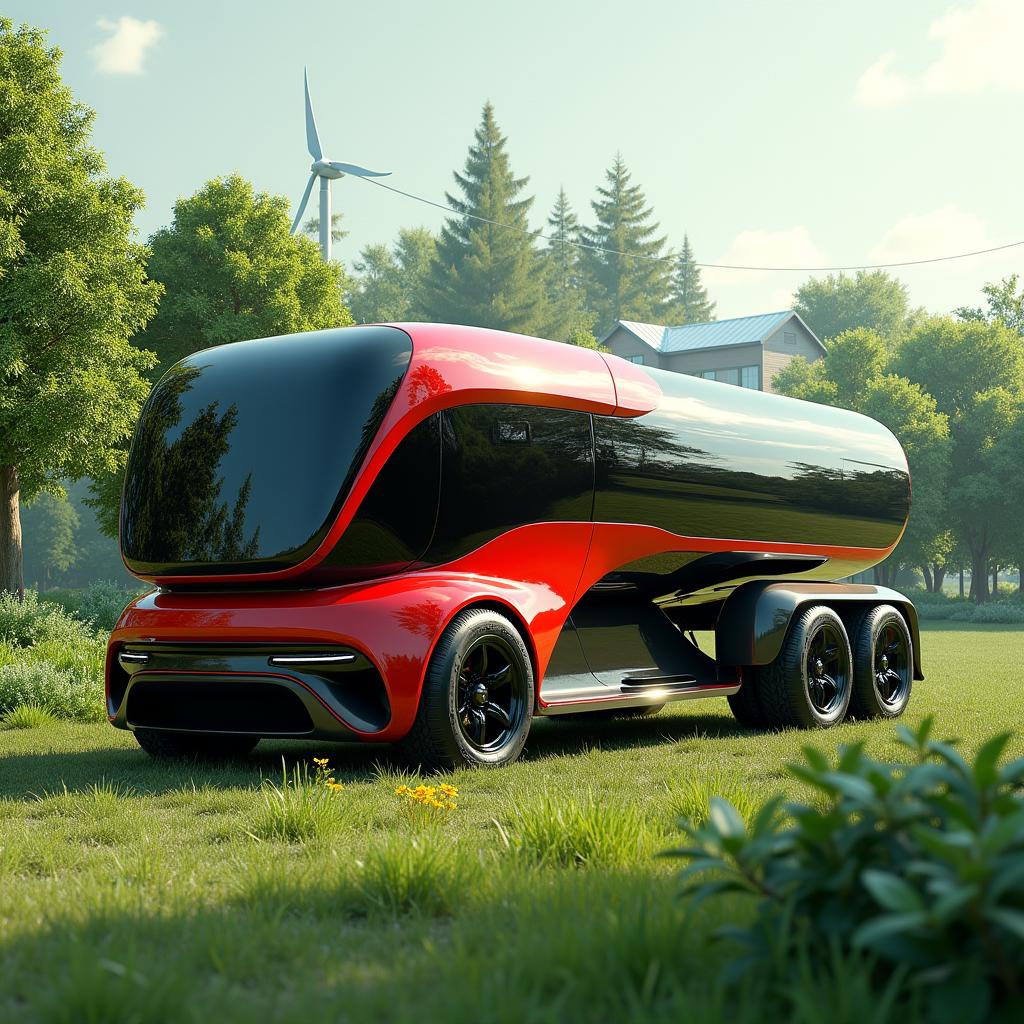Sustainable Trucking Solutions: Driving Forward to a Greener Future
The transportation industry stands at a critical crossroads as we face mounting environmental challenges. Sustainable trucking solutions have emerged as a vital component in the fight against climate change, offering innovative ways to reduce emissions while maintaining the efficiency of freight transport. With the trucking industry accounting for approximately 7% of global CO2 emissions according to the International Energy Agency, the need for greener alternatives has never been more pressing.
The Evolution of Green Trucking Technologies
The landscape of sustainable trucking has transformed dramatically over the past decade. From electric powertrains to advanced aerodynamics, the industry is embracing multiple approaches to reduce its environmental footprint while improving operational efficiency.
Electric and Hybrid Solutions
The most significant advancement in sustainable trucking comes from electrification. Major manufacturers like Tesla, Volvo, and Daimler are investing heavily in electric truck development. These vehicles offer:
- Zero direct emissions during operation
- Lower maintenance costs compared to diesel engines
- Reduced noise pollution in urban areas
- Potential for significant fuel cost savings
While range limitations and charging infrastructure remain challenges, rapid technological improvements are making electric trucks increasingly viable for medium-haul operations.
Hydrogen Fuel Cell Technology
Hydrogen fuel cell trucks represent another promising avenue for sustainable freight transport. These vehicles combine the zero-emission benefits of electric vehicles with the quick refueling capabilities of traditional trucks. Major benefits include:
- Extended range compared to battery-electric vehicles
- Faster refueling times
- No battery degradation concerns
- Potential for green hydrogen production using renewable energy
Optimizing Fleet Operations for Sustainability
Beyond vehicle technology, significant environmental gains can be achieved through smarter fleet management and operational improvements.
Route Optimization and Load Management
Advanced routing software and AI-powered logistics systems can significantly reduce fuel consumption and emissions. Studies by the EPA’s SmartWay program show that efficient route planning can reduce fuel consumption by up to 15%.
Key strategies include:
- Real-time traffic monitoring and route adjustment
- Load optimization to maximize cargo space utilization
- Reduction of empty miles through better backhaul planning
- Strategic deployment of vehicles based on cargo requirements
Driver Training and Behavior Modification
The human element plays a crucial role in achieving sustainable trucking goals. Proper driver training and behavior modification can lead to significant fuel savings and reduced emissions.
Essential training components include:
- Efficient acceleration and braking techniques
- Optimal speed management
- Idle reduction strategies
- Proper vehicle maintenance practices
Studies show that well-trained drivers can improve fuel efficiency by up to 10%, making this a cost-effective approach to sustainability.
Infrastructure and Support Systems
The success of sustainable trucking solutions depends heavily on supporting infrastructure and systems. This includes:
Charging and Refueling Networks
The development of robust charging networks for electric trucks and hydrogen refueling stations is crucial. According to the National Renewable Energy Laboratory, strategic placement of charging infrastructure along major freight corridors can support the widespread adoption of zero-emission trucks.
Smart Grid Integration
The integration of charging infrastructure with smart grid technology enables:
- Optimal charging times based on grid demand
- Reduced electricity costs through time-of-use rates
- potential for vehicle-to-grid energy storage
- Enhanced grid stability through managed charging
Economic Benefits and ROI
While the initial investment in sustainable trucking solutions may be higher, the long-term economic benefits are compelling:
- Reduced fuel costs
- Lower maintenance expenses
- Tax incentives and grants
- Improved corporate image and customer satisfaction
- Future-proofing against stricter emissions regulations
Cost Analysis and Payback Periods
When evaluating the financial aspects of sustainable trucking solutions, consider:
- Total cost of ownership over the vehicle’s lifetime
- Fuel and maintenance savings
- Available incentives and subsidies
- Potential carbon credit revenues
Many fleets are finding that the payback period for sustainable technologies is becoming increasingly attractive, often ranging from 3-7 years depending on usage patterns and available incentives.
Future Trends and Innovations
The sustainable trucking industry continues to evolve rapidly, with several promising developments on the horizon:
Emerging Technologies
- Advanced battery chemistries for improved range and charging speed
- Solar-assisted electric trucks
- Autonomous driving capabilities
- Connected vehicle technologies for improved efficiency
Policy and Regulatory Environment
Upcoming regulations and initiatives are likely to accelerate the adoption of sustainable trucking solutions, including:
- Stricter emissions standards
- Carbon pricing mechanisms
- Increased incentives for zero-emission vehicles
- Low-emission zones in urban areas
Conclusion: Taking Action for a Sustainable Future
The transition to sustainable trucking solutions represents both a challenge and an opportunity for the freight industry. By embracing these technologies and practices, companies can reduce their environmental impact while improving their bottom line.
Ready to begin your journey toward sustainable trucking? Our team of experts is here to help you navigate the transition to greener fleet operations. Contact us today at +1 206-337-4787 to discuss how we can help you implement sustainable trucking solutions that work for your business.
Take the first step toward a more sustainable future for your fleet. Let’s work together to create a cleaner, more efficient transportation industry for generations to come.







